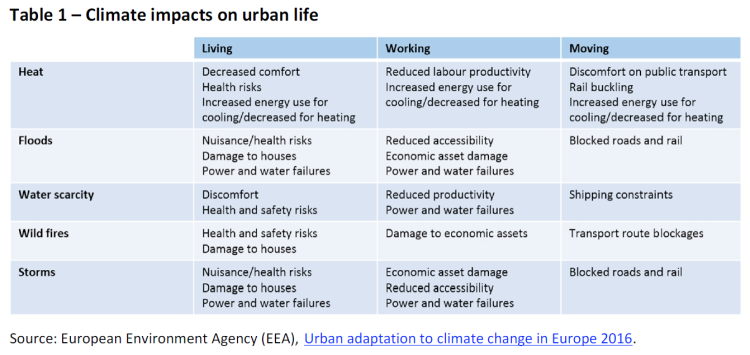 English available languages
English available languages
Cities have a crucial role to play in addressing the climate change challenge and delivering on the ambitions of the Paris Agreement. In the European Union, where nearly three quarters of the population live in urban areas, many cities are leading the way in this regard, taking action in three areas central to increasing energy efficiency and reducing emissions – namely, buildings, energy supply, and transport – and acting as living laboratories of climate-change-related innovation.
The EU supports cities in their efforts by providing guidance, promoting experience-and knowledge-sharing, fostering cooperation, and funding climate action. Climate-relevant initiatives are in place in various policy fields, from transport to the environment, research and innovation, the most high profile being the Covenant of Mayors for Climate and Energy, which currently counts some 7 600 signatories.
The impacts of climate change that European cities will experience differ based on their geographical location and intrinsic vulnerabilities. However, all of them are likely to be affected. Climate change will impact several aspects of urban living, as well as the provision of essential services such as transport, water, energy or health care (Table 1).
Cohesion policy is the EU’s main investment policy for regions and cities. It is delivered through three main funds: the European Regional Development Fund (ERDF), the Cohesion Fund (CF) and the European Social Fund (ESF). Fostering the shift towards a low-carbon economy; promoting climate change adaptation, resource efficiency and sustainable transport are among the priorities of current EU’s cohesion policy (see Figure 2). €12 billion is for instance devoted to low-carbon and sustainable urban mobility.
Source: eptt
 English available languages
English available languages


